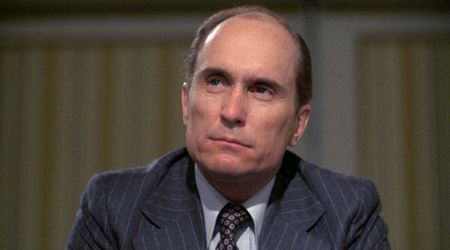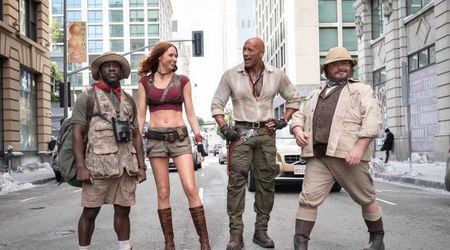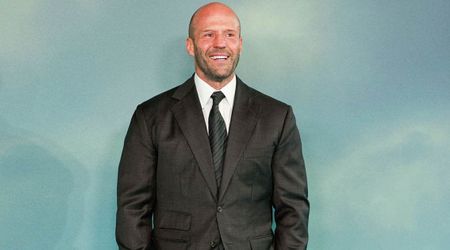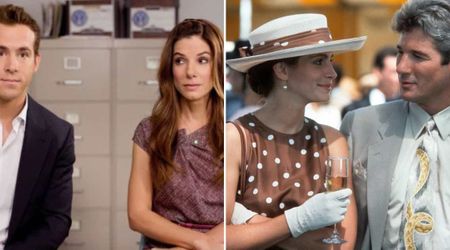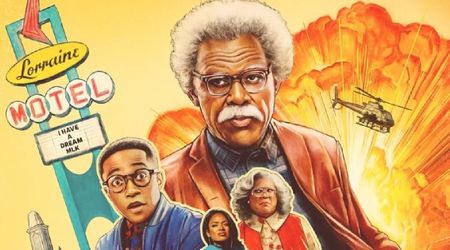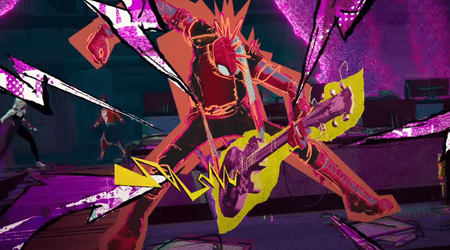Video game movies are the next big thing... but a lot needs to be done before they ignite the box-office

The success of Steven Spielberg's Ready Player One has been described as a geeks-to-riches story, mainly because of author Ernest Cline, who is the mastermind behind the novels that inspired the eerily exact plot of the movie.
A protagonist hunting for Easter eggs in a virtual reality game set in the 2040s - this dystopian future forms the premise of the book and of the movie (of the same name), which is currently making waves at the box office, having already crossed the $300 million mark worldwide and scooping another $143 million in China. Despite the strong roots in virtual reality, however, the film's success may mean little for video game movie adaptations and their future.
A. Because of Spielberg
B. It's, technically not a video-game-turned-movie
In fact, in the history of video game movies, seldom has a film been able to garner the kind of success that other cinematic adaptations - for instance, literary films or comic book-based films (a sly reference to Marvel Cinematic Universe) - have gotten used to since their conception coupled with the advancements in movie-tech (read CGI).
Whether it's with the critics or the die-hard fans, who would readily embrace any kind of big-screen adaptation, video game movies have proven to be a box-office bomb.
Time and again. From 1993's disasterpiece 'Super Mario Bros.' to the most recent Assassin’s Creed movie, such movies have failed to ignite the imagination or the box office. Although that hardly serves as a deterrent to the big Hollywood bosses and studios, who as per most reports, are busy charting the journey of every popular video game from the plastic cases to the silver screen.
If a Den of Geek report is to be believed, at present, there are over 40 video game movie adaptations in the works - including a Call Of Duty film universe based on the franchise, Angry Birds 2, Contra, Dante's Inferno, Firewatch, The Last of Us and so on.
And yet, judging by the success rate so far, it's highly unlikely that a breakthrough adaptation will hit the screen, making serious money and grabbing eyeballs as far as the critics are concerned.
This brings us back to question: Why do video game movies always fail?
Perhaps, a part of this question can be answered in the words of the late American film critic Roger Ebert, who sent millions of gamers around the world into a frenzy by calling video games as the opposite of art.
“Video games by their nature require player choices, which is the opposite of the strategy of serious film and literature, which requires authorial control,” he wrote raising quite a few eyebrows in his piece titled "Video games can never be art".
Briefly summarizing the nuances associated with turning a video game, which essentially is a different medium as compared to cinema, into a film, the critic had shared a brutally honest explanation. It was in connection with the one-star review of 2005's Doom.
He wrote, "The movie has been inspired by the famous video game. No, I haven’t played it, and I never will, but I know how it feels not to play it. Because I’ve seen the movie. Doom is like some kid came over and is using your computer and won’t let you play.”
As contrary to what most readers, failing to understand the true meaning of the review vis a vis the video game, felt after reading the vicious yet delightful critique, Roger wasn't really trying to belittle the game, or it's plot or even the history associated with the games. He was rather pointing out how the adaptation robbed the video game of its very essence, where it's a two-way process involving participation from the player/s, just because the cinematic medium limits the scope.
The keyword is involvement. In the gaming mode, the players are granted full/partial control of the plot and action based on the designing of the game. Whether you are jumping off skyscrapers, running across busy streets flying airplanes, crawling through narrow pipeline or busting gangsters - it's an immersive platform where the scope of exploration is far greater.
Whereas on the big screen, a video game adaptation simply turns into a spectacle, as visually stunning and engrossing it might be, it fails to command the same kind of attention, interest or participation from the viewer.
And this calls for consideration of the plot and characterization. The reason, strong screenplays translate into instant box office success is because of the storyline - if a filmmaker/screenplay writer can together produce something so compelling, all-encompassing that it makes the audience relate and respond to the vast array of emotion-provoking scenes, it's bound to be a hit, critically as well as commercially.
Unfortunately, the rigid style and blank characterization that are very much a requirement for video games, do not work well with the art of big-screen storytelling. To put this into perspective, take into account the 1993 release 'Super Mario Bros.' Not only are the previously personality-less characters ascribed a strong and almost comical disposition but as if to add to the ridicule, these characters speak in heavy Brooklyn accents - definitely something that the cult-like fans of the games didn't appreciate.
Even as a Super Mario virgin, a regular movie-goer would find it difficult to buy the lackluster world portrayed in the cinematic iteration. This can be better explained if you consider the style of characterization in a video game - where the "empty" nature of the lead or protagonist helps the player to apprehend the virtual world according to individual perceptions. It becomes even more important when war/action games are taken into account, where each player responds to different situations in a unique manner.
Silent characters, in fact, are the order of the day in some of the biggest hits in the gaming world like Half-Life, Portal, and The Legend of Zelda. And how that fares in the movie sphere is no rocket science.
Given the buzz surrounding video game adaptations and their consequent failures, it didn't come as much of a surprise, when I stumbled across a Quora page, dedicated to this topic. And ironically, the two highlights are, once again, connected to the story but with a slightly different approach.
More often than not, a video game-based movie's failure is either because the screenplay went too far from the original theme and plot or because the big screen iteration was by-the-book, following the action minus any creativity. Explaining this aspect, the Tekken movie was discussed, which not only failed to impress the general movie crowd but also gaming loyalists. The recurring complaint was that after leaving the theaters most people were in a state of confusion as the final product was so removed from the gaming series.
Criticism poured in from all corners, including from the director of the video game series, Katsuhiro Harada. "That Hollywood movie is terrible. We were not able to supervise that movie; it was a cruel contract. I'm not interested in that movie," he said, slamming the cinematic version.
Another argument against the video game movies is that the makers are more obsessed over the action part of the games than the mystery or adventure - although, in the filmmakers' defense, the latest Tomb Raider movie starring Alicia Vikander did try to address this issues with a healthy dose of Indiana Jones-meets-Da Vinci Code moments. But this goes without saying, that video game adaptations still have a long way to go before they can aptly translate the key aspects of imagination, aptly, on the big screen.
Agreed, it's nearly impossible to transform a multi-series spanning video game experience into some two odd hours of passive viewing, but the keyword is immersion. If the complexities of the virtual reality can be captured and reproduced in a style more suited to the cinematic mode, chances are these adaptations could at least change the perception of this genre.


